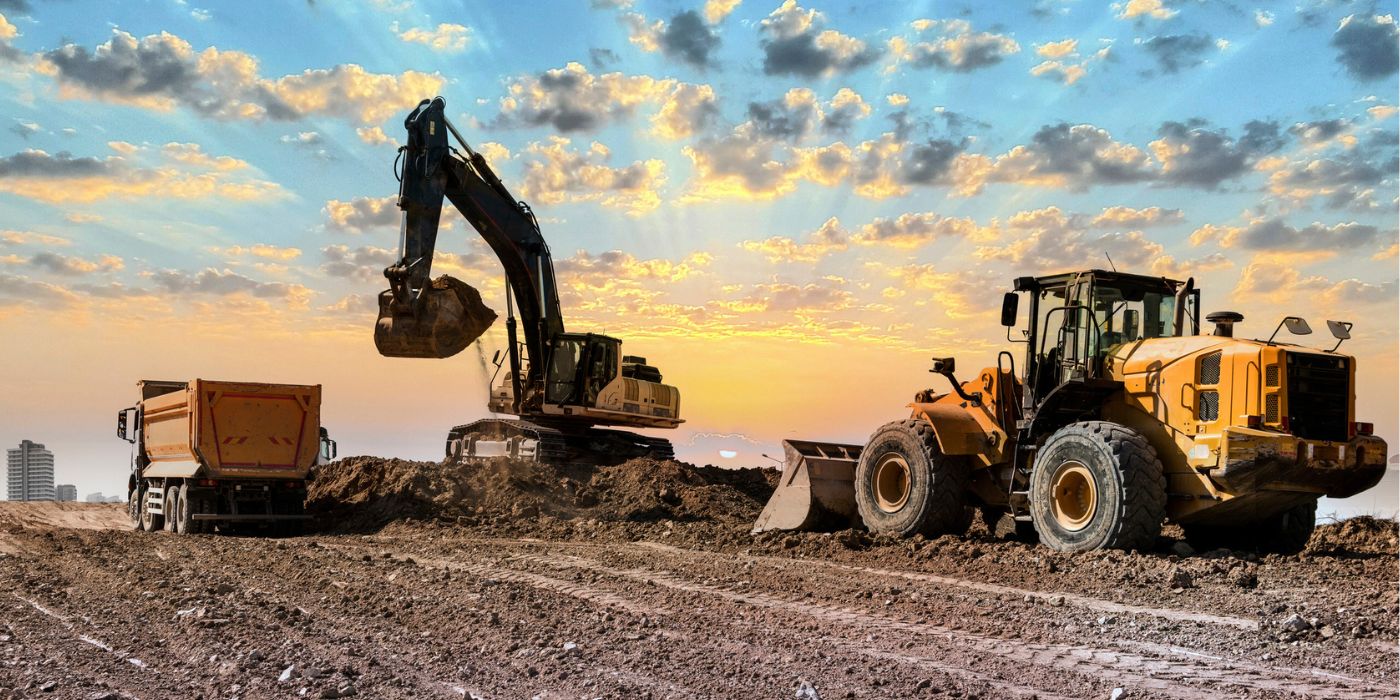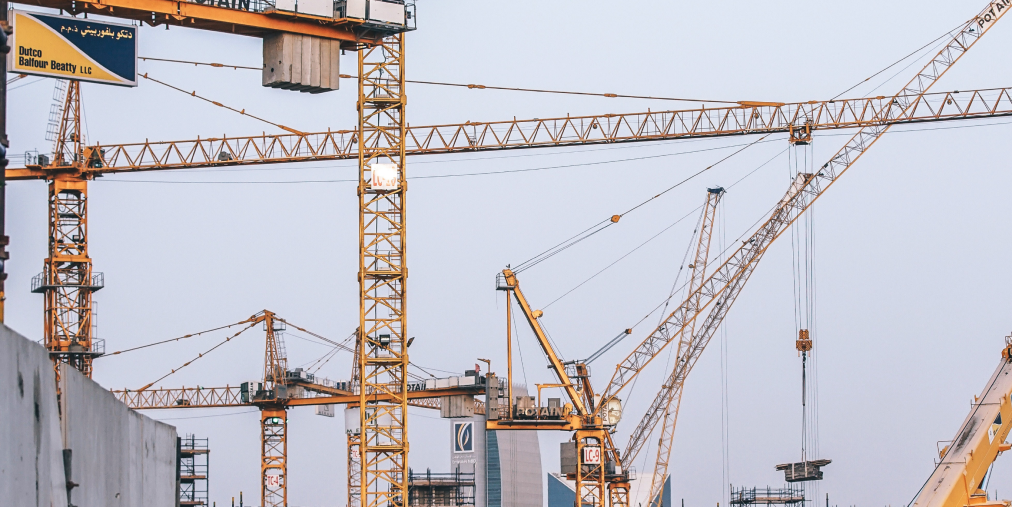Discovering the Financial Perks of Leasing Construction Tools Contrasted to Having It Long-Term
The decision in between renting and owning construction equipment is essential for economic administration in the sector. Renting offers instant cost savings and operational flexibility, permitting companies to allocate resources a lot more efficiently. In contrast, possession includes substantial lasting economic commitments, consisting of upkeep and devaluation. As contractors consider these alternatives, the effect on capital, project timelines, and innovation gain access to comes to be significantly substantial. Comprehending these subtleties is crucial, especially when thinking about how they align with particular job needs and monetary strategies. What factors should be focused on to ensure optimum decision-making in this complex landscape?
Expense Contrast: Renting Out Vs. Owning
When assessing the economic ramifications of renting out versus possessing building devices, a complete price contrast is crucial for making notified choices. The choice in between owning and renting can substantially influence a business's profits, and understanding the linked expenses is critical.
Renting out building tools normally entails reduced in advance prices, permitting businesses to allocate funding to various other operational needs. Rental prices can accumulate over time, potentially exceeding the expenditure of possession if equipment is needed for a prolonged period.
Alternatively, possessing construction equipment calls for a substantial initial investment, together with recurring costs such as financing, insurance coverage, and depreciation. While ownership can result in long-lasting financial savings, it likewise binds funding and might not give the very same degree of adaptability as leasing. Furthermore, possessing tools demands a dedication to its use, which may not always straighten with job needs.
Eventually, the decision to rent or have ought to be based upon an extensive evaluation of specific task demands, financial ability, and long-lasting critical goals.

Maintenance Duties and expenses
The option in between renting out and possessing construction devices not only includes financial considerations yet additionally encompasses ongoing maintenance expenditures and obligations. Possessing tools needs a substantial dedication to its upkeep, that includes routine examinations, fixings, and prospective upgrades. These obligations can quickly build up, bring about unanticipated costs that can strain a budget.
In comparison, when leasing equipment, maintenance is typically the responsibility of the rental company. This arrangement enables contractors to stay clear of the financial worry associated with damage, along with the logistical challenges of scheduling fixings. Rental arrangements typically include stipulations for maintenance, suggesting that specialists can concentrate on finishing jobs as opposed to stressing over equipment condition.
Moreover, the diverse variety of devices available for rental fee allows companies to select the most recent designs with advanced modern technology, which can boost efficiency and performance - scissor lift rental in Tuscaloosa, AL. By going with leasings, services can avoid the long-term responsibility of tools depreciation and the associated maintenance migraines. Ultimately, examining maintenance expenses and responsibilities is vital for making a notified decision about whether to rent out or own construction equipment, significantly influencing general job costs and functional effectiveness

Depreciation Influence On Possession

A significant element to take into consideration in the choice to own building equipment is the impact of devaluation on overall possession costs. Depreciation represents the decline in worth of the tools with time, influenced by elements such as use, damage, and developments in innovation. As devices ages, its market price lessens, which can dramatically impact the proprietor's financial placement when it comes time to trade the tools or offer.
For building firms, this devaluation can translate to substantial losses if the devices is not utilized to its greatest possibility or if it lapses. Proprietors find here have to represent depreciation in their financial forecasts, which can lead to greater general expenses contrasted to renting out. In addition, the tax obligation implications of devaluation can be complex; while it may supply some tax advantages, these are frequently offset by the reality of reduced resale worth.
Ultimately, the burden of devaluation highlights the significance of understanding the long-term monetary commitment associated with owning building tools. Firms must meticulously review how typically they will use the equipment and the possible financial effect of depreciation to make an educated choice regarding ownership versus renting.
Monetary Flexibility of Renting Out
Leasing building devices supplies substantial economic adaptability, enabling firms to allocate sources a lot more effectively. This flexibility is specifically crucial in an industry characterized by fluctuating job demands and varying work. By choosing to rent out, organizations can prevent the considerable capital investment needed for buying equipment, maintaining cash money circulation for various other operational demands.
Additionally, leasing devices enables companies to customize their devices options to details project requirements without the lasting commitment connected with ownership. This implies that services can conveniently scale their tools supply up or down based upon present and expected job requirements. Consequently, this adaptability decreases the danger of over-investment in machinery that might become underutilized or outdated gradually.
Another economic advantage of renting out is the possibility for tax obligation advantages. Rental repayments are frequently construction machinery for rent considered general expenses, permitting prompt tax reductions, unlike devaluation on owned equipment, which is spread over numerous years. scissor lift rental in Tuscaloosa, AL. This prompt cost acknowledgment can additionally enhance a company's cash placement
Long-Term Task Considerations
When assessing the lasting requirements of a construction service, the decision in between possessing and leasing equipment comes to be a lot more complex. Trick elements to take into consideration consist of project period, frequency of usage, and the nature of upcoming tasks. For jobs with extended timelines, acquiring equipment might seem useful due to the possibility for lower total costs. Nevertheless, if the equipment will certainly not be made use of constantly across jobs, possessing may lead to underutilization and unnecessary expense on storage, upkeep, and insurance.
Additionally, technological advancements position a considerable factor to consider. The building and construction sector is advancing rapidly, with brand-new devices offering boosted efficiency and safety functions. Leasing enables companies to access the latest modern technology without devoting to the high ahead of time prices connected with investing in. This adaptability is specifically beneficial for organizations that handle varied jobs calling for various kinds of tools.
In addition, monetary stability plays an essential role. Having equipment usually requires substantial capital expense and devaluation problems, while renting enables for more foreseeable budgeting and money flow. Eventually, the choice in between leasing and having should be aligned with the tactical goals of the building and construction visit here service, considering both anticipated and current task demands.
Final Thought
Finally, renting construction devices offers substantial economic advantages over long-lasting possession. The reduced in advance prices, removal of upkeep duties, and avoidance of depreciation add to improved cash money circulation and financial versatility. scissor lift rental in Tuscaloosa, AL. Additionally, rental payments function as instant tax obligation reductions, even more benefiting specialists. Eventually, the decision to rent out instead of own aligns with the vibrant nature of building and construction tasks, permitting adaptability and accessibility to the most current devices without the monetary problems connected with ownership.
As tools ages, its market worth diminishes, which can considerably impact the owner's economic position when it comes time to offer or trade the equipment.
Leasing building equipment supplies substantial monetary versatility, enabling business to assign resources more successfully.Additionally, renting tools makes it possible for companies to tailor their equipment selections to certain task requirements without the lasting commitment linked with ownership.In final thought, renting building and construction devices provides substantial monetary advantages over lasting possession. Inevitably, the decision to lease instead than own aligns with the vibrant nature of building jobs, enabling for flexibility and accessibility to the newest devices without the monetary worries linked with possession.